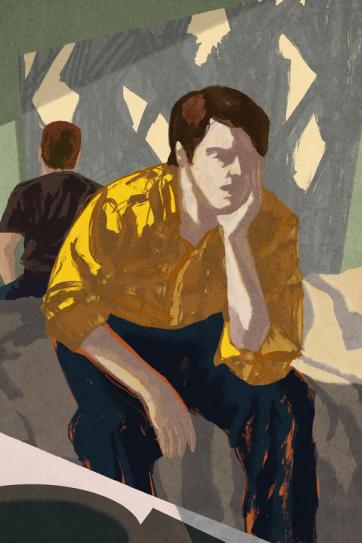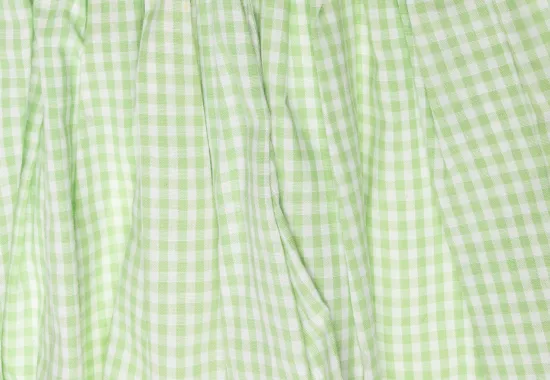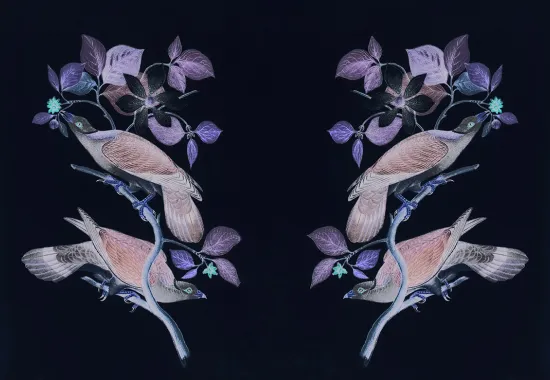Notes on “Prayer for my New Daughter” from issue 300.1

Prayer for My New Daughter
After Yeats, and inspired by an attack on transgender students using a “bathroom with urinals” at a college in the northeastern US.
A soul in chrysalis, in first agonized molt,
must choose: LADIES, or MENS.
For some—for you—these rooms are fraught,
an open field where lines are drawn: think of
the White-Only signs. Or Serrano’s Piss Christ
and Duchamp’s Fountain, pitted with acid
and icepicks, de-faced. As for restrooms called
“Bathrooms with Urinals,” no, his words
will never deconstruct the master’s house.
For an hour I have walked and prayed,
considering icepicks, how they’re made
to fit a blind hand; how kept so well honed.
You are soft as sown grass and fierce as cut glass.
You pack your new purse with lipstick, and mace.
This poem presented me with several technical problems, most imposed by the limitations of sonnet structure. “Prayer for my New Daughter” is part of a manuscript called Paradise Drive that recently won the 2015 Press 53 Award for Poetry and will be released at AWP in April 2015. Because Paradise Drive is entirely comprised of sonnets—some faithful to form, and others exploded—I did feel compelled to say all I had to say in this poem in fourteen lines. I don’t necessarily love epigraphs (and have noticed many editors don’t, either) but I felt I had to give attribution to Yeats. Also, while still in the process of revising the poem, I noticed that it worked better at readings where I had a chance to give background on the events that inspired it.
I wrote the poem after hearing a story about a group of transmen (students) allegedly assaulted while attempting to use a campus restroom formerly designated a “Men’s Room” but re-assigned as a “Bathroom with Urinals.” The impulse to create gender-neutral restrooms was a good one. But, in this case, as it so often does, language failed, and changing the words was not enough. I began to think about how bathrooms and the human needs associated with them can be flash points for social conflict, about racially segregated restrooms and the controversy ignited by works of art like Andres Serrano’s Piss Christ (a photograph of a crucifix submerged in a glass of the artist’s urine), or Marcel Duchamp’s Fountain (a sculpture made of a porcelain urinal turned 90 degrees).
How could I get all that into fourteen lines? And why was that important to me?
It was important to me because I wanted readers to understand that the daughter in the poem is transgender, and that the parent pacing the floor at night is worrying about something more serious than the embarrassment of a  cis-gender daughter assigned to a dorm with co-ed bathrooms. (The poem was, to my chagrin, actually read that way in one workshop when I introduced it without the epigraph.) A better writer than I could have worked all that information into the confines of the sonnet. Trust me, I tried.
cis-gender daughter assigned to a dorm with co-ed bathrooms. (The poem was, to my chagrin, actually read that way in one workshop when I introduced it without the epigraph.) A better writer than I could have worked all that information into the confines of the sonnet. Trust me, I tried.
The poem is titled after and borrows a line from Yeats’s “Prayer for my Daughter,” a poem sometimes criticized for the conventional gender role the speaker in it assigns to his daughter. During one period of revision I called my poem “New Prayer for my Daughter” to make clear that mine was a departure from rather than an homage to Yeats’ poem. The borrowed line describing a parent staying up late and worrying over his child, —“I have walked and prayed”—is one place I did feel an affinity with Yeats’ poem. For a time, I called my poem “Bathroom-With-Urinals” a title that, in the absence of some explanation, was just inscrutable to readers. And with it I was still having the problem of people thinking the speaker was just some suburban mom worried about her daughter having to pee in a co-ed bathroom. Finally, I re-titled the poem “Prayer for my New Daughter” and added the epigraph you see here.
An earlier version of the poem paraphrased Audre Lorde’s line, well known to activists: “His tools will never dismantle the Master’s house.” Although I ultimately decided not to use Lorde’s line I do think it was what started me thinking about how language can fail and also about tools. Lorde’s “tools” are read by some, notably by Language Poets, as words forged by those in power, the language of the oppressor. Who for some time has looked mostly white and male. Language shapes thought the way a crooked knife cuts a crooked line, Lorde says. Or, where words fail, it is necessary to take action.
The “words” referred to in my line, “You tell me again that just changing the words / won’t change the world you still have to live in,” are the MEN and LADIES room signs that make it difficult—and sometimes dangerous—for my daughter to use a public restroom. The “tools” in my poem are the ice picks, acid, hammers and razors used throughout history to deface public art and more recently in brutal attacks on transgender persons trying to use public restrooms. I deconstructed the word “de-faced” to emphasize the word “face,” and those “ice picks” are meant to be horrifying.
The ice pick detail is important for another reason. I wanted to remind readers that, as recently as the 1960’s in this country, ice pick lobotomies were sometimes used to “treat” gay and transgender persons. Performed under local anesthesia (or under electroshock-induced seizure), ice pick lobotomies could—and in the case of Rosemary Kennedy likely did—result in severe brain damage. Just enter the words “ice pick lobotomy” in any search engine and you will be led to Walter Freeman, the man who developed the procedure and then toured the country in a van he called his “lobotomobile” to perform it more than 3500 times, usually charging $25, sometimes on minors and always without informed consent.
Illustrations by Tom Moore, an illustrator and visual artist currently living in St. Louis.
Recommended
The Shirt
After Hearing David Rothenberg Sang with Birds
Frothing Pink Poodle Droppings





